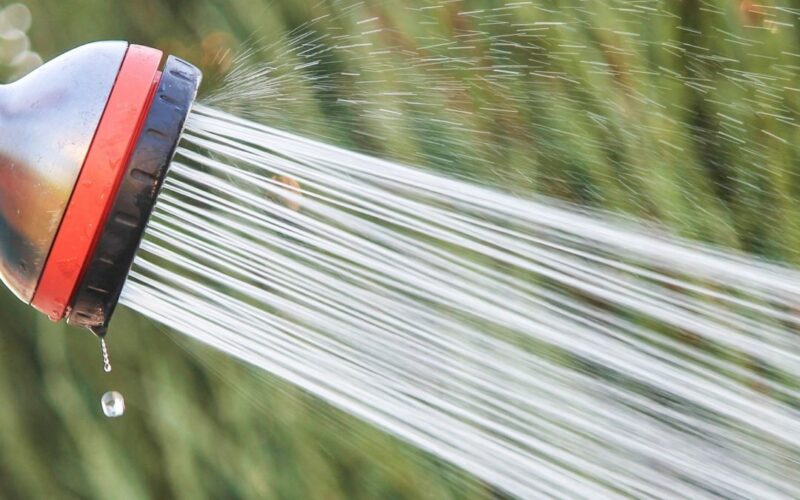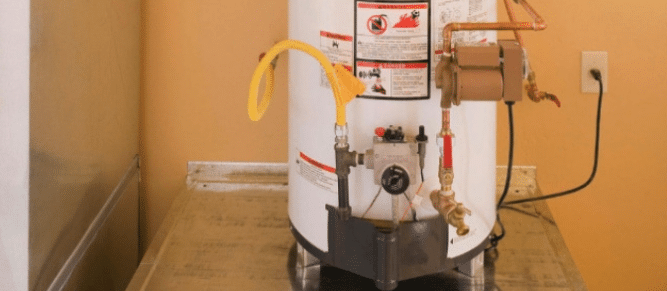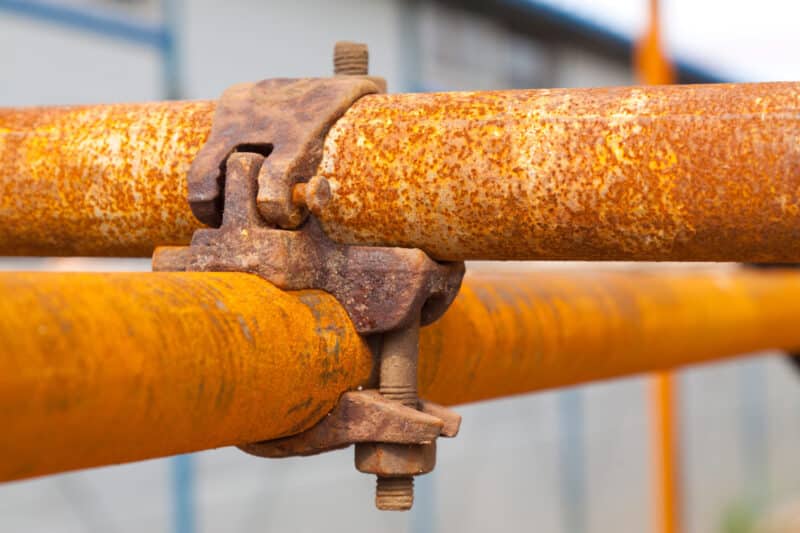Hard water stains on glass can mar the beauty of your home’s windows, shower doors, and other surfaces, leaving them looking cloudy and unclean. Removing these stubborn marks isn’t as easy as just wiping them away, and it often leaves homeowners battling against their water. The frustration is real, but so is the possibility of crystal-clear glass.
Ready to remove your hard water stains? Here’s what we’ll cover:
- The science behind hard water stains and why they are so persistent.
- 3 proven methods for removing hard water stains from glass.
- Preventative measures to keep hard water stains from returning.
With the right knowledge and techniques, you can win the fight against hard water stains and restore the sparkle to your glass surfaces. Let’s uncover the secrets to achieving streak-free glass.
Understanding Hard Water Stains
Ever noticed those frustratingly persistent spots and films on your glass surfaces that just won’t go away, no matter how hard you scrub? That’s the handiwork of hard water.
When water loaded with minerals like calcium and magnesium evaporates, it leaves behind a crusty white residue that can be a real eyesore. This isn’t just any dirt or grime; it’s a mineral deposit that’s formed a bond with the surface of your glass, making it notoriously tough to remove.
Hard water stains are more than just a cosmetic issue. They can actually damage glass over time, etching into the surface and causing permanent marks if left untreated. What sets hard water stains apart from other types of glass discoloration, such as soap scum or mildew, is their origin and stubbornness. While most other stains are organic and can be washed away with regular cleaning agents, hard water stains require a bit more elbow grease and the right strategy to get rid of.
The battle against hard water stains isn’t just about keeping your glass looking clean; it’s about preserving the integrity and longevity of your glass surfaces. With the right approach, you can remove these blemishes and prevent future ones from forming. Stay tuned as we dive into the proven methods for banishing hard water stains for good.
Hard Water Stain Removal Method 1: Vinegar and Water
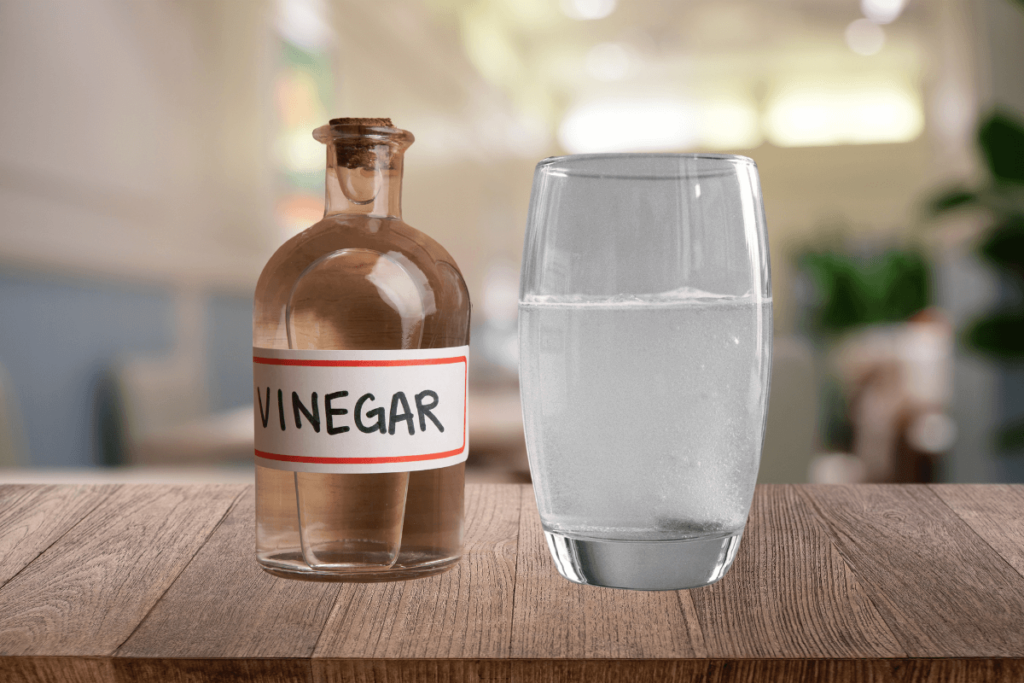
If you’re looking for a simple, eco-friendly solution to tackle hard water stains, you can’t go wrong with the classic vinegar and water mixture. This method is a favorite for many due to its effectiveness, affordability, and minimal environmental impact. Here’s how to make those glass surfaces sparkle again:
- Mix the Solution: Combine equal parts of white vinegar and water in a spray bottle. Vinegar’s acidic nature makes it perfect for dissolving those tough mineral deposits that water leaves behind.
- Apply Generously: Spray the vinegar solution directly onto the glass with hard water stains. Don’t be shy—ensure the surface is thoroughly soaked to allow the vinegar to work its magic.
- Let It Sit: Let the solution sit on the glass for at least 15 minutes. For more stubborn stains, you might want to wait up to 30 minutes. This gives the vinegar time to break down the mineral buildup.
- Scrub Gently: Using a soft sponge or cloth, gently scrub the glass in a circular motion. You’ll find that the stains start to lift away as the vinegar does its job.
- Rinse and Dry: Once the stains have been scrubbed away, rinse the glass with clean water and dry it with a lint-free towel or cloth to prevent new stains from forming.
Why does vinegar work so well? Its acidity targets the alkaline minerals, effectively breaking them down and making it easier to wipe the slate clean. Plus, it’s a natural disinfectant, leaving your glass not only stain-free but also hygienically clean.
Hard Water Stain Removal Method 2: Baking Soda Paste
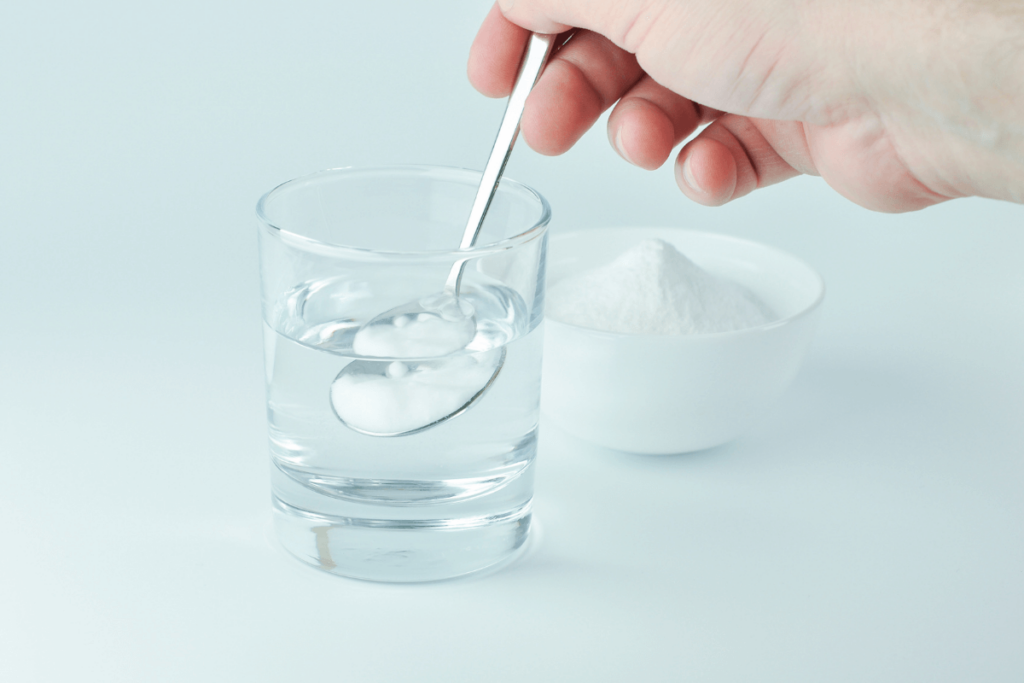
When vinegar alone doesn’t cut it, or you’re dealing with particularly stubborn hard water stains, baking soda comes to the rescue. This common household item is not just for baking; its mild abrasive properties make it an excellent choice for removing tough stains without damaging glass. Here’s how to use baking soda to bring back the shine to your glass surfaces:
- Create the Paste: Mix a small amount of water with baking soda to form a thick paste. The consistency should be similar to toothpaste, allowing it to stick to the glass surface without running off.
- Apply the Paste: With a soft cloth or sponge, apply the baking soda paste directly onto the stained areas. Be generous but focused on the spots that need the most attention.
- Scrub Gently: Using a soft-bristled brush or the cloth, gently scrub the paste into the stains in a circular motion. The gentle abrasiveness of baking soda works to lift the mineral deposits from the glass.
- Let It Sit: Allow the paste to sit on the glass for about 15 minutes. This dwell time gives the baking soda a chance to break down the hard water stains further.
- Rinse Thoroughly: After letting it sit, rinse the glass with clean water. Ensure all the baking soda residue is washed away, as leftover paste can leave a white film on the glass.
- Dry and Polish: Dry the glass with a lint-free cloth or towel. For an extra sparkle, you can polish the glass with a clean microfiber cloth or newspaper for streak-free results.
Baking soda is not only effective but also safe for most glass surfaces, making it a go-to choice for eco-conscious cleaners. Its natural deodorizing properties can also help eliminate any lingering smells, leaving your glass and your home smelling fresh.
Hard Water Stain Removal Method 3: Commercial Cleaners
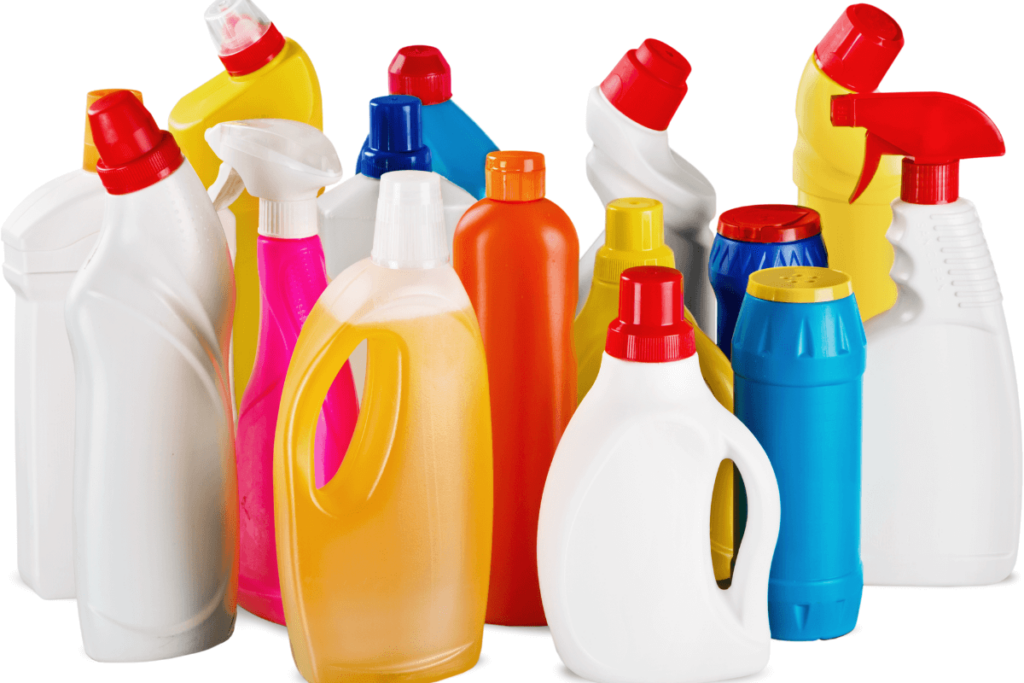
If you’re cleaning glass, the previous methods probably have you covered. But for those who are dealing with particularly stubborn stains that natural remedies can’t tackle, commercial cleaners designed specifically for hard water stains can be highly effective.
These products often contain stronger chemicals that can quickly dissolve mineral deposits, making them a powerful ally in your cleaning arsenal. Here’s how to use them safely and effectively:
- Choose the Right Cleaner: Look for a cleaner that’s specifically formulated for removing hard water stains from glass. Products containing ingredients like hydrochloric acid, phosphoric acid, or acetic acid are particularly effective but should be used with caution due to their strength.
- Safety First: Always wear gloves and ensure the area is well-ventilated when using chemical cleaners. Read and follow the manufacturer’s instructions carefully to avoid damage to your glass surfaces or harm to yourself.
- Apply According to Instructions: Some cleaners can be applied directly, while others may need to be diluted. Apply the cleaner to the stained areas, adhering to the recommended contact time on the product’s label.
- Scrub if Necessary: For tough stains, gently scrub the treated area with a non-abrasive sponge or brush. Be mindful not to use anything too harsh that could scratch the glass.
- Rinse Well: Thoroughly rinse the glass with clean water after the recommended time has elapsed. Removing all traces of the cleaner is essential to avoid leaving behind any residue that could attract more dirt or cause damage.
- Dry and Inspect: Dry the glass with a clean, lint-free cloth. Inspect the area to ensure all stains have been removed. Repeat the process if needed, but always allow the glass to dry between applications to assess the results accurately.
While commercial cleaners can offer a quick and effective solution, they’re not always the most environmentally friendly option. Always consider the impact on your household and the environment when choosing to use chemical cleaners.
Preventing Hard Water Stains
Keeping hard water stains at bay is about more than just regular cleaning; it’s about minimizing the opportunities for those minerals to deposit on your glass in the first place. Here are some strategies to help you maintain clear, stain-free glass without constant scrubbing:
- Use a Water Softener: Installing a water softener in your home can significantly reduce the mineral content in your water, attacking the problem at its source. This can be a game-changer for all your water-related cleaning tasks, not just for glass surfaces.
- Squeegee After Use: Whenever possible, dry glass surfaces after they get wet. For glass in areas like the shower, use a squeegee after each use to remove water before it evaporates and leaves behind mineral deposits. It’s a simple step that can make a big difference.
- Apply a Protective Coating: Various products on the market can create a protective barrier on your glass, repelling water and preventing stains. These can be especially useful for shower doors and windows in high-exposure areas.
- Regular Cleaning: Regularly cleaning your glass surfaces with a mild detergent or one of the methods mentioned earlier can prevent hard water stains from setting in. Consistency is key to keeping your glass looking its best.
By incorporating these preventative measures into your routine, you can significantly reduce the occurrence of hard water stains, saving you time and effort in the long run. Maintaining clean glass surfaces becomes easier and more manageable, letting you enjoy the beauty of your home without the shadow of hard water stains.
From Stained to Sparkling: Concluding Our Hard Water Stain Remedies
Battling hard water stains on glass can seem like a never-ending struggle, but with the right approach, it’s a fight you can win. We’ve explored the science behind these stubborn stains and armed you with three effective strategies to not only remove them but prevent their return. From the simplicity and eco-friendliness of a vinegar and water solution to the robust power of commercial cleaners, there’s a method suited to every situation and preference.
Here’s a quick recap of what we covered:
- Understanding the stubborn nature of hard water stains ensures you’re well-equipped to tackle them head-on.
- Vinegar and water solutions, baking soda pastes, and commercial cleaners provide a toolkit for anyone looking to restore the shine to their glass surfaces.
- Preventative measures such as using water softeners, squeegeeing after use, and applying protective coatings can significantly reduce the frequency and severity of hard water stains.
As you move forward, remember that regular maintenance and a proactive approach are your best defenses against the dulling effect of hard water. By integrating these methods and tips into your cleaning routine, you can keep your glass sparkling clear and your home looking its best.


